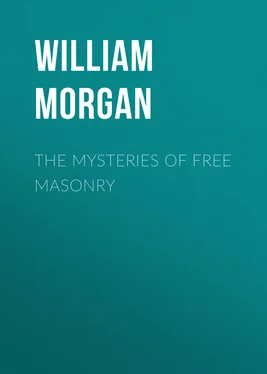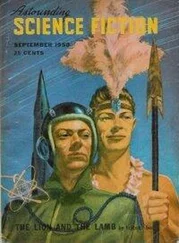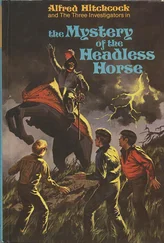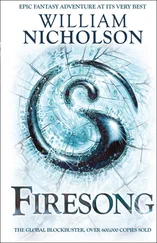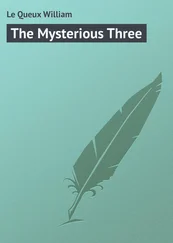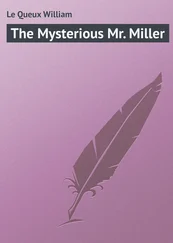William Morgan - The Mysteries of Free Masonry
Здесь есть возможность читать онлайн «William Morgan - The Mysteries of Free Masonry» — ознакомительный отрывок электронной книги совершенно бесплатно, а после прочтения отрывка купить полную версию. В некоторых случаях можно слушать аудио, скачать через торрент в формате fb2 и присутствует краткое содержание. Жанр: foreign_prose, foreign_religion, Философия, foreign_psychology, foreign_antique, на английском языке. Описание произведения, (предисловие) а так же отзывы посетителей доступны на портале библиотеки ЛибКат.
- Название:The Mysteries of Free Masonry
- Автор:
- Жанр:
- Год:неизвестен
- ISBN:нет данных
- Рейтинг книги:5 / 5. Голосов: 1
-
Избранное:Добавить в избранное
- Отзывы:
-
Ваша оценка:
- 100
- 1
- 2
- 3
- 4
- 5
The Mysteries of Free Masonry: краткое содержание, описание и аннотация
Предлагаем к чтению аннотацию, описание, краткое содержание или предисловие (зависит от того, что написал сам автор книги «The Mysteries of Free Masonry»). Если вы не нашли необходимую информацию о книге — напишите в комментариях, мы постараемся отыскать её.
The Mysteries of Free Masonry — читать онлайн ознакомительный отрывок
Ниже представлен текст книги, разбитый по страницам. Система сохранения места последней прочитанной страницы, позволяет с удобством читать онлайн бесплатно книгу «The Mysteries of Free Masonry», без необходимости каждый раз заново искать на чём Вы остановились. Поставьте закладку, и сможете в любой момент перейти на страницу, на которой закончили чтение.
Интервал:
Закладка:
"I, A. B., of my own free will and accord, in the presence of Almighty God, and this Worshipful Lodge of Fellow Craft Masons, dedicated to God, and held forth to the Holy Order of St. John, do hereby and hereon most solemnly and sincerely promise and swear, in addition to my former obligation, that I will not give the degree of a Fellow Craft Mason to any one of an inferior degree, nor to any one being in the known world, except it be to a true and lawful brother, or brethren Fellow Craft Masons, or within the body of a just and lawfully constituted Lodge of such; and not unto him nor unto them whom I shall hear so to be, but unto him and them only whom I shall find so to be, after strict trial and due examination, or lawful information. Furthermore, do I promise and swear, that I will not wrong this Lodge, nor a brother of this degree, to the value of two cents, knowingly, myself, nor suffer it to be done by others, if in my power to prevent it. Furthermore, do I promise and swear, that I will support the Constitution of the Grand Lodge of the United States, and of the Grand Lodge of this State, under which this Lodge is held, and conform to all the by-laws, rules, and regulations of this, or any other Lodge, of which I may at any time hereafter become a member, as far as in my power. Furthermore, do I promise and swear, that I will obey all regular signs and summons given, handed, sent, or thrown to me by the hand of a brother Fellow Craft Mason, or from the body of a just and lawfully constituted Lodge of such; provided it be within the length of my cable-tow, or a square and angle of my work. Furthermore, do I promise and swear, that I will be aiding and assisting all poor and penniless brethren Fellow Crafts, their widows and orphans, wheresoever disposed 'round the globe, they applying to me as such, as far as in my power, without injuring myself or family. To all which I do most solemnly and sincerely promise and swear, without the least hesitation, mental reservation, or self-evasion of mind in me whatever; binding myself under no less penalty than to have my left breast torn open, and my heart and vitals taken from thence and thrown over my left shoulder, and carried into the valley of Jehosaphat, there to become a prey to the wild beasts of the fields, and vultures of the air, if ever I should prove wilfully guilty of violating any part of this my solemn oath or obligation of a Fellow Craft Mason; so keep me God, and keep me steadfast in the due performance of the same."
The Master then says, "Detach your hands and kiss the book, which is the Holy Bible, twice." The bandage is now (by one of the brethren) dropped over the other eye, and the Master says, "Brother (at the same time laying his hand on the top of the candidate's head), what do you most desire?" The candidate answers, after his prompter, "More light." The Master says, "Brethren, form on the square, and assist in bringing our new-made brother from darkness to light; 'And God said, Let there be light, and there was light.'" At this instant all the brethren clap their hands, and stamp on the floor, as in the preceding degree. The Master says to the candidate, "Brother, what do you discover different from before?" The Master says, after a short pause, "You now discover one point of the Compass elevated above the Square, which denotes light in this degree; but as one is yet in obscurity, it is to remind you that you are yet one material point in the dark respecting Masonry." The Master steps off from the candidate three or four steps, and says, "Brother, you now discover me as a Master of this Lodge, approaching you from the East, under the sign and due-guard of a Fellow Craft Mason; do as I do, as near as you can, keeping your position." The sign is given by drawing your right hand flat, with the palm of it next to your breast, across your breast, from the left to the right side, with some quickness, and dropping it down by your side; the due-guard is given by raising the left arm until that part of it between the elbow and shoulder is perfectly horizontal, and raising the rest of the arm in a vertical position, so that that part of the arm below the elbow, and that part above it, forms a square; this is called the due-guard of a Fellow Craft Mason. The two given together are called the sign and due-guard of a Fellow Craft Mason, and they are never given separate; they would not be recognized by a Mason if given separately. The Master, by the time he gives his steps, sign, and due-guard, arrives at the candidate, and says, "Brother, I now present you with my right hand, in token of brotherly love and confidence, and with it the pass-grip and word of a Fellow Craft Mason." The pass, or more properly the pass-grip, is given by taking each other by the right hand, as though going to shake hands, and each putting his thumb between the fore and second finger, where they join the hands, and pressing the thumb between the joints. This is the pass-grip of a Fellow Craft Mason; the name of it is Shibboleth. Its origin will be explained in the Lecture; the pass-grip some give without lettering or syllabling, and others give it in the same way they do the real grip. The real grip of a Fellow Craft Mason is given by putting the thumb on the joint of the second finger, where it joins the hand, and crooking your thumb so that each can stick the nail of his thumb into the joint of the other. This is the real grip of a Fellow Craft Mason; the name of it is Jachin; it is given in the following manner: If you wish to examine a person, after having taken each other by the grip, ask him, "What is this?" A. "A grip." Q. "A grip of what?" A. "The grip of a Fellow Craft Mason." Q. "Has it a name?" A. "It has." Q. "Will you give it to me?" A. "I did not so receive it, neither can I so impart it." Q. "What will you do with it?" A. "I'll letter it or halve it." Q. "Halve it, and you begin." A. "No; begin you." Q. "You begin." A. "JA." Q. "CHIN." A. "JACHIN." Q. "Right, Brother Jachin, I greet you."
After the Master gives the candidate the pass-grip and grip, and their names, he says, "Brother, you will rise and salute the Junior and Senior Wardens as such, and convince them that you have been regularly passed to the degree of a Fellow Craft Mason, and have got the sign and pass-grip, real grip, and their names." [I do not here express it as expressed in Lodges generally; the Master usually says you will rise and salute the Wardens, &c., and convince them, &c., that you have got the sign, pass-grip, and word. It is obviously wrong, because the first thing he gives is the sign, then the due-guard, then the pass-grip, and their names.] While the Wardens are examining the candidate, the Master gets an apron, and returns to the candidate, and says, "Brother, I now have the honor of presenting you with a lamb-skin, or white apron, as before, which I hope you will continue to wear, with honor to yourself, and satisfaction to the brethren; you will please carry it to the Senior Warden in the West, who will teach you how to wear it as a Fellow Craft Mason." The Senior Warden ties on his apron, and turns up one corner of the lower end of the apron, and tucks it under the apron string. The Senior Deacon then conducts his pupil to the Master, who has by this time resumed his seat in the East, where he has, or ought to have, the floor carpet to assist him in his explanations. Master to the candidate, "Brother, as you are dressed, it is necessary you should have tools to work with; I will, therefore, present you with the tools of a Fellow Craft Mason. They are the Plumb, Square, and Level. The Plumb is an instrument made use of by operative masons to raise perpendiculars; the Square, to square their work; and the Level, to lay horizontals; but we, as Free and Accepted Masons, are taught to use them for more noble and glorious purposes; the Plumb teaches us to walk uprightly, in our several stations, before God and man; squaring our actions by the square of virtue; and remembering that we are traveling on the level of time to that 'undiscovered country, from whose bourne no traveler has returned.' I further present you with three precious jewels; their names are Faith, Hope, and Charity; they teach us to have faith in God, hope in immortality, and charity to all mankind." The Master to the Senior Deacon, "You will now conduct the candidate out of this Lodge, and invest him with what he has been divested." After he is clothed, and the necessary arrangements made for his reception, such as placing the columns and floor carpet, if they have any, and the candidate is reconducted back to the Lodge; as he enters the door, the Senior Deacon observes, "We are now about to return to the middle chamber of King Solomon's Temple." When within the door, the Senior Deacon proceeds, "Brother, we have worked in speculative Masonry, but our forefathers wrought both in speculative and operative Masonry. They worked at the building of King Solomon's Temple, and many other Masonic edifices; they wrought six days; they did not work on the seventh, because in six days God created the heavens and the earth, and rested on the seventh day. The seventh, therefore, our ancient brethren consecrated as a day of rest; thereby enjoying more frequent opportunities to contemplate the glorious works of creation, and to adore their great Creator." Moving a step or two, the Senior Deacon proceeds, "Brother, the first thing that attracts our attention are two large columns, or pillars, one on the left hand, and the other on the right; the name of the one on the left hand is Boaz, and denotes strength; the name of the one on the right hand is Jachin, and denotes establishment; they collectively allude to a passage in Scripture, wherein God has declared in his word, 'In strength shall this house be established.' These columns are eighteen cubits high, twelve in circumference, and four in diameter; they are adorned with two large chapiters, one on each, and these chapiters are ornamented with net work, lily work, and pomegranates; they denote unity, peace, and plenty. The net work, from its connection, denotes union; the lily work, from its whiteness, purity and peace; and the pomegranate, from the exuberance of its seed, denotes plenty. They also have two large globes, or balls, one on each; these globes or balls contain, on their convex surfaces, all the maps and charts of the celestial and terrestrial bodies; they are said to be thus extensive to denote the universality of Masonry, and that a Mason's charity ought to be equally extensive. Their composition is molten, or cast brass; they were cast on the banks of the river Jordan, in the clay-ground between Succoth and Zaradatha, where King Solomon ordered these and all other holy vessels to be cast; they were cast hollow; and were four inches, or a hand's breadth thick; they were cast hollow, the better to withstand inundations and conflagrations; they were the archives of Masonry, and contained the constitution, rolls, and records." The Senior Deacon having explained the columns, he passes between them, advances a step or two, observing as he advances, "Brother, we will pursue our travels; the next thing that we come to is a long, winding staircase, with three, five, seven steps, or more. The three first allude to the three principal supports in Masonry, viz., wisdom, strength, and beauty; the five steps allude to the five orders in architecture, and the five human senses; the five orders in architecture are the Tuscan, Doric, Ionic, Corinthian, and Composite; the five human senses are Hearing, Seeing, Feeling, Smelling, and Tasting; the three first of which have ever been highly essential among Masons: Hearing, to hear the word; Seeing, to see the sign; and Feeling, to feel the grip, whereby one Mason may know another in the dark as well as in the light. The seven steps allude to the seven sabbatical years; seven years of famine; seven years in building the temple; seven golden candlesticks; seven wonders of the world; seven planets; but more especially the seven liberal arts and sciences, which are Grammar, Rhetoric, Logic, Arithmetic, Geometry, Music, and Astronomy; for this, and many other reasons, the number seven has ever been held in high estimation among Masons." Advancing a few steps, the Senior Deacon proceeds, "Brother, the next thing we come to is the outer door of the middle chamber of King Solomon's Temple, which is partly open, but closely tyled by the Junior Warden" [It is the Junior Warden in the South who represents the Tyler at the outer door of the middle chamber of King Solomon's Temple], who, on the approach of the Senior Deacon and candidate, inquires, "Who comes here? Who comes here?" The Senior Deacon answers, "A Fellow Craft Mason." Junior Warden to Senior Deacon, "How do you expect to gain admission?" A. "By a pass, and token of a pass." Junior Warden to Senior Deacon, "Will you give them to me?" [The Senior Deacon, or the candidate (prompted by him), gives them; this and many other tokens, or grips, are frequently given by strangers when first introduced to each other. If given to a Mason, he will immediately return it; they can be given in any company unobserved, even by Masons, when shaking hands. A pass, and token of a pass; the pass is the word Shibboleth; the token, alias the pass-grip, is given, as before described, by taking each other by the right hand, as if shaking hands, and placing the thumb between the forefinger and second finger, at the third joint, or where they join the hand, and pressing it hard enough to attract attention. In the Lecture it is called a token, but generally called the pass-grip. It is an undeniable fact that Masons express themselves so differently, when they mean the same thing, that they frequently wholly misunderstand each other.]
Читать дальшеИнтервал:
Закладка:
Похожие книги на «The Mysteries of Free Masonry»
Представляем Вашему вниманию похожие книги на «The Mysteries of Free Masonry» списком для выбора. Мы отобрали схожую по названию и смыслу литературу в надежде предоставить читателям больше вариантов отыскать новые, интересные, ещё непрочитанные произведения.
Обсуждение, отзывы о книге «The Mysteries of Free Masonry» и просто собственные мнения читателей. Оставьте ваши комментарии, напишите, что Вы думаете о произведении, его смысле или главных героях. Укажите что конкретно понравилось, а что нет, и почему Вы так считаете.
